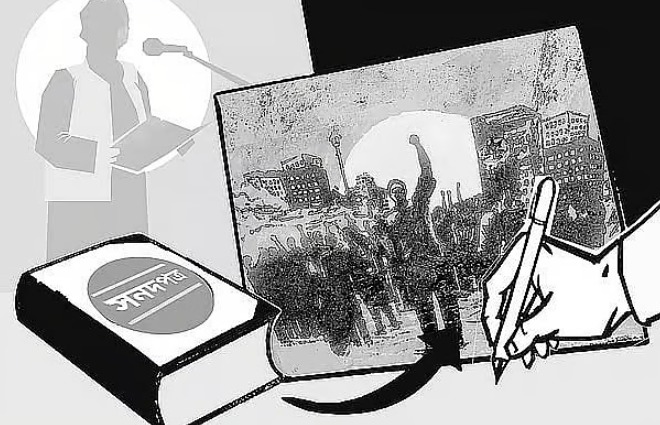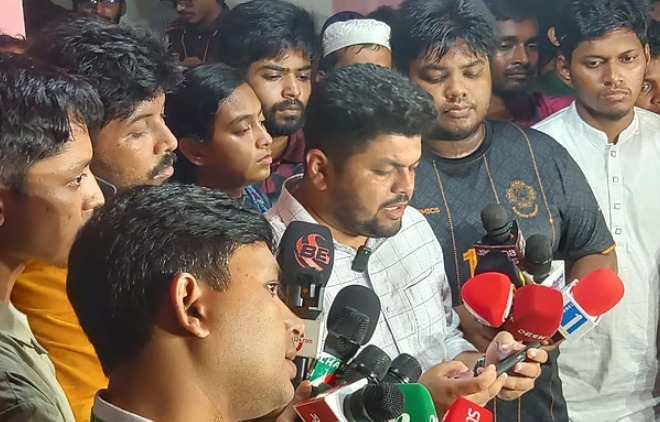Desk Report,
Implementation of July Charter: BNP, Jamaat and NCP talk about three types of methods
The day-long discussions between the National Consensus Commission and political parties on ways to implement the constitutional reform proposals of the July National Charter did not yield any results. In the discussions on Thursday, the parties were adamant on their previous positions on the implementation method. The discussion will be held again on Sunday.
Implementation of July Charter: BNP, Jamaat and NCP talk about three types of methods
Earlier, the commission had informal discussions with the parties on the implementation method. 29 parties had sent their opinions to the commission in writing. There are clear differences of opinion among the political parties on the implementation method. In particular, BNP, Jamaat-e-Islami and Jatiya Nagorik Party (NCP) have spoken about three types of methods.
BNP is in favor of implementing the constitutional proposals within two years of the formation of the next National Parliament. Jamaat-e-Islami wants to implement the reform proposals through a special order of the President or through a referendum before the next elections, and NCP wants to implement the reform proposals through the formation of a Constituent Assembly. The National Consensus Commission held formal discussions with 30 parties on the implementation method of the Charter yesterday at the Doel Hall of the Foreign Service Academy in the capital. The discussions began around 11:30 am. The discussion continued until about 6 pm with a lunch break. In this discussion, the three parties stuck to their previous positions and presented their respective arguments.
In the two-phase discussion with the political parties on the reform proposals of the six reform commissions, consensus and decisions have already been reached on 84 issues. The July National Charter is being prepared on these. The consensus commission gave the final draft of the charter to the parties yesterday. The commission has been asked to inform the names of two party leaders who will sign the charter by tomorrow, Saturday. However, it has not been finalized yet when the charter will be signed.
There is doubt whether all parties will sign the charter if the implementation method is not right. However, the implementation method will not be part of the charter. The commission will make recommendations to the government based on discussions with the political parties on this.
Among the reform proposals in the July Charter, several can be implemented through the issuance of an ordinance. Some can be implemented through an executive order. The parties have agreed to implement these through ordinances and executive orders. The main debate is over the implementation method of the constitution-related proposals. At the beginning of yesterday’s discussion, the National Consensus Commission presented which party wants to implement the July Charter in what way. In addition, the suggestions the commission has received from experts were also highlighted.
The commission received six recommendations in writing from political parties for the implementation of the constitution-related proposals. They are: a referendum on the full Charter or some parts of it, implementation through a special constitutional order under the executive power of the President, implementation through the formation of a Constituent Assembly, implementation through the Thirteenth Parliament, establishing the Parliament as a constitutional reform assembly and incorporating the issues of the Charter into the Constitution, and seeking an opinion from the Appellate Division of the Supreme Court through the President as per Article 106 of the Constitution on whether the interim government can implement the Charter or not.
At the meeting, the commission said that the experts have suggested implementing the proposals included in the July Charter (including dissenting opinions) in four ways. These are ordinance, executive order, referendum and special constitutional order.




